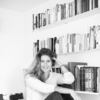Meike Gleim
Scientific Researcher chez Hochschule Fulda

Meike Gleim has a PhD in philosophy. She is specialised in democracy theorie, human rights, European Studies, Gender Studies and arts based research. She has completed several research projects and taught at European Universities (Kunstakademie Münster, Università Piemonte Orientale « Amedeo Avogadro », Strate Collège Paris, Academy of Fine Arts Vienna, University of Fulda). Her projects have been funded by the Marie Curie Fellowship (European Commission), the Austrian Academy of Sciences and the Austrian Science Fund (FWF). She has been conducting artistic research projects, shown in international exhibitions (Palais de Tokyo, Paris, Fabra-i-Coats, Barcelona, Kunsthaus Hamburg, Secession, Vienna etc.) and produced performances and workshops. She is a member of the management committee of the Cost Action "Reappraising intellectual debates on civic rights and democracy". Her books include "Die Regierung der Demokratie" ("The government of democracy", Passagen 2009), "The meanings of Europe" (Routledge 2013) and "Was hätte Virginia Woolf dazu gesagt?" (What would Virginia Woolf had said about it?, Marta Press 2018), forthcoming "Atlas of Arcadia" (Verlag Walther König 2019). She is fluent in four languages (DE, EN, FR, IT).
Prices
- Conference : 4500 €
Localization
Languages
Themes of this speaker
His/Her talks
The success of fake news
Fake news is one the top debates in media and conferences at the moment. Brexit, Trump and social networks, just to name a few keywords of the debate, seem to inevitably lead to the question of fake news. However, my talk claims that the arguments struggle with a false ideal state of rationality as a counterpart of fake news. They discuss for instance whether fake news are a new phenomenon or whether it has always existed – and only changed in scale and scope; whether fake news are dangerous or not as people are not so stupid as to believe in them. All of these positions presuppose an ideal state of rationality, either one that existed in the past, in the good old times of objective journalism or one that is part of people’s intelligence, the so called common sense. However does this really explain the spreading and power of fake news? My talk will take a somewhat different look at the phenomenon of fake news, a look that explains not only its success but that could also help us in confronting with fake news.
How to change the world with words
The presentation develops from a common ground between philosophy and business theory: the invention of new words. Okay, philosophers and business scholars do not invent the same words. While the business world has seen words like lean and agile management or holistic project management, recent philosophy came up with terms such as accelerationism and speculative realism. These words do not have anything in common and yet, the reason behind the invention of new words is the same. Thus the presentation asks: Why do we invent new words in philosophy and in business? What is at stake in the invention of words? What is the power of words? And finally what do powerful words actually do? The presentation analyses the power of words by giving some examples which reach from banal to more sophisticated expressions as the power of words counts as much for expressions such as Sandwich or Bistro as it counts for more serious ones like Human Rights or the subconsciousness. With the help of the history of these words the presentation shows how words become concepts and as such translate into social practices that transform our way of acting and interacting. So words that come out of fashion also come along with the decline of certain social practices and successfull words often encounter resistence not because people do not like the word, but because these words change their world.